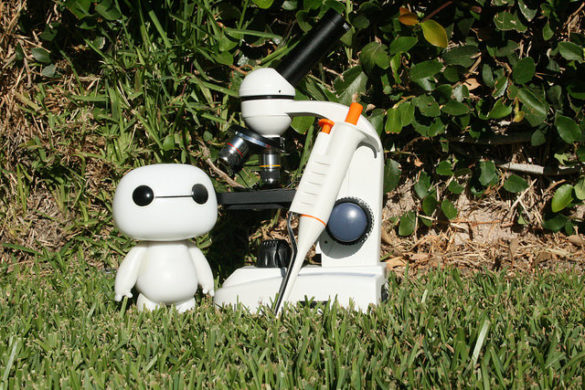
By Benjamin Minch, Staff Writer
What makes you human? Is it your human genome, or your ability to reason and think? Or is it your capability to do human tasks, like communicating with other humans and creating things? In reality, this is only about 10% of what makes you human. You are actually composed of over 90% bacteria.
Bacteria is just one of the many microbes inside of you and is the most prevalent. Before you get disgusted however, please take note that these bacteria are healthy and without them, you wouldn’t be alive. Bacteria are essential to digestive, immune and respiratory systems and most importantly, not allowing harmful bacteria to grow.
Bacteria growth is very similar to human growth in an overpopulated area. Bacteria must have enough space and nutrients in order to grow. If the healthy bacteria are taking up a lot of that room and resource, the harmful bacteria will be unable to grow and flourish. This is the simple mechanism that bacteria use to communicate and grow and it is the reason that you don’t immediately get sick whenever you are exposed to another sick human. This is also the reason that I don’t use hand sanitizer. Why risk killing 99% of my friendly bacteria and allowing harmful ones the chance to grow?
Each strand of bacteria inside of you also has its own genome, which means that they have the capability to replicate and mutate. For each gene that we have, there are 360 microbial genes inside of us. But housing all of these bacteria isn’t without benefits. There is a symbiotic relationship between us and bacteria that is essential for life.
A symbiotic relationship is one where both organisms gain benefits from a relationship. In the case of microbes, we give them a place to live and they keep us alive. Without microbes, you probably wouldn’t be able to digest food, meaning you wouldn’t get sufficient energy and die. Microbes do more than just this however, they also extract vitamins from foods and train our immune system. They do this by releasing small amounts of antigens, so the immune system can be prepared when a large amount is released.
These bacteria and other microbes are in no way bad, but altering their microbiome too much can make you sick. Disrupting their ecosystems could look like swallowing highly toxic foods, or even too many processed foods with chemicals that are deadly to the microbes.
Each person has a unique microbiome and set of bacteria, but there are certain similarities across humans. Skin bacteria is more similar to skin bacteria on another human than to your own gut bacteria. These unique arrangements of bacteria cause all humans to slightly differ in immune systems, digestive abilities and resistance to certain insect bites and chemicals.
Your body is its own biome, home to many diverse organisms and life forms that interact in unison to make you who you are. Next time you shove a bunch of junk food down your throat, just remember that you are probably causing the death of many innocent bacteria. That however, isn’t such a bad thing because bacteria regenerate and grow at an extremely fast rate. Killing too many however, could make you sick. Having knowledge of your biome’s inhabitants can help you prevent illnesses and make your biome a great place to live in.





